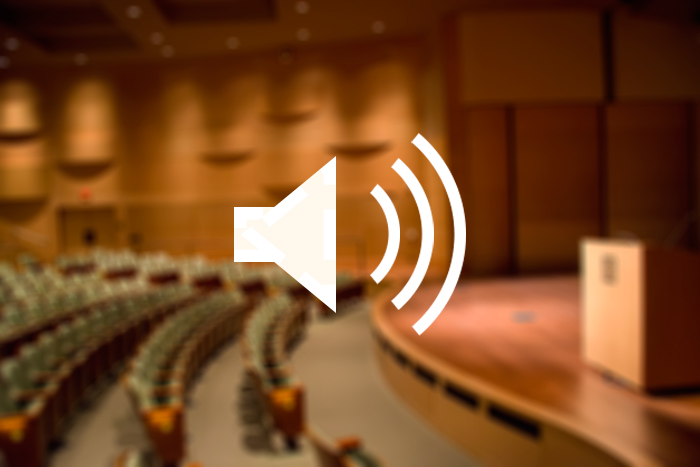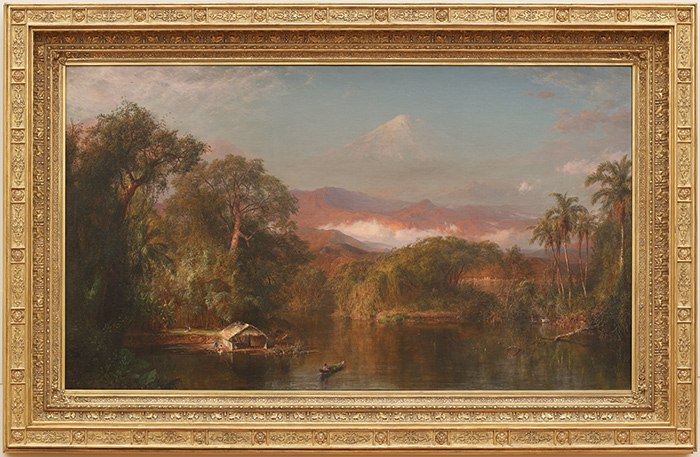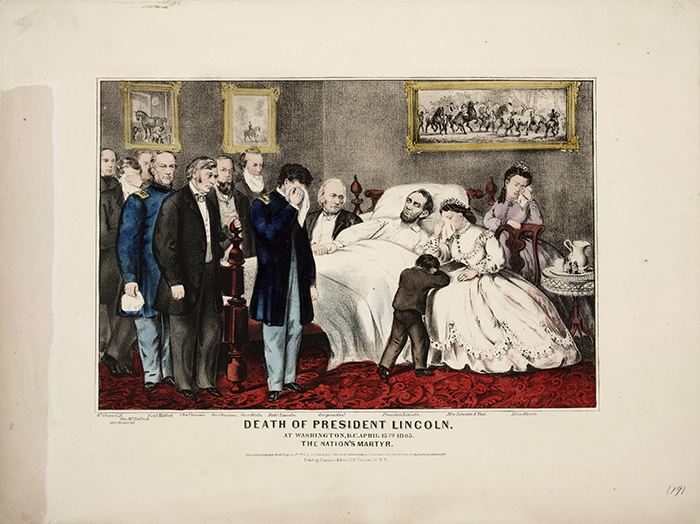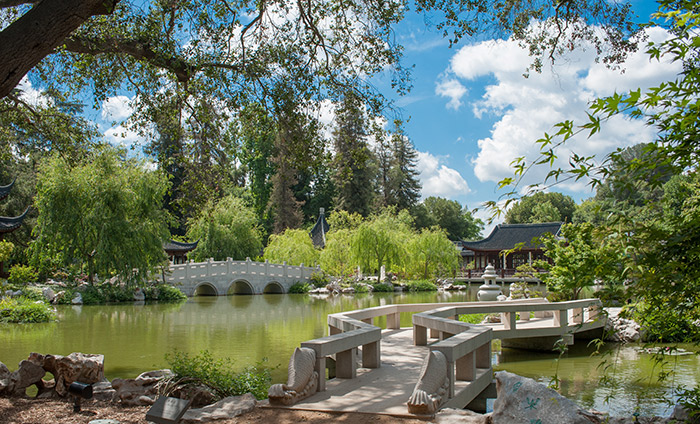The blog of The Huntington Library, Art Museum, and Botanical Gardens.
Hear Ye, Hear Ye
Posted on Thu., Nov. 19, 2015 by

The Huntington records many lectures and conference talks and makes them available to the public. Give a listen at the links below.
Did you hear that The Huntington possesses an illuminated prayer book that fell from the hands of Mary Queen of Scots when she was beheaded in 1587? Or that the findings of German naturalist Alexander von Humboldt laid the groundwork for John Muir’s ideas of preservation and Henry David Thoreau’s Walden? These are just two intriguing tidbits that emerged from recent talks at The Huntington. Give a listen by clicking the links listed in the descriptions below.
The first recording is of “Tales from the Vaults,” a fascinating lecture by former research director Robert C. Ritchie. He describes some of the most colorful items in The Huntington’s collections. The second recording is a talk by best-selling author Andrea Wulf about her new book, The Invention of Nature: Alexander von Humboldt’s New World.
Each year, The Huntington holds scores of public lectures and numerous academic conferences, many of which we record and make available to the public for free. We’ve gathered six recent recordings here for your listening pleasure. If you connect via iTunes U, you’ll also find other compelling talks on offer.
You can view the most popular of them in the “Top Downloads” section, or search by category or by notable subject—for instance, "Early Modern History," "California and the West," or "Exhibitions," among others. We generally add recordings weekly, so check back from time to time (you’ll find a link to our iTunes U page in the “Connect With Us” section at the bottom of The Huntington’s homepage).
And be sure to peruse our online calendar find out about upcoming events.

Painter Frederic Edwin Church visited South America after reading Alexander von Humboldt’s description of its unspoiled beauty. Church’s monumental Mount Chimborazo, 1864, compresses into one painting the high desert, mountains, and jungle found in Ecuador. Huntington Library, Art Galleries, and Botanical Gardens.
Tales from the Vaults
Ever wonder whether to believe the rumors that The Huntington stores its most precious items in a bank-worthy vault with foot-thick walls? It’s true! Senior research associate Robert C. Ritchie takes you on a virtual tour of The Huntington’s inner sanctum, describing some of the most intriguing and valuable items among the Library’s nine million books, manuscripts, and other objects. Download here or listen on iTunes U (the link is contained within “History of the Huntington”).
The Invention of Nature: Alexander von Humboldt’s New World
Best-selling author Andrea Wulf (Founding Gardeners; The Brother Gardeners) discusses her new book on visionary German naturalist and explorer Alexander von Humboldt (1769–1859). Humboldt, says Wulf, created the way we understand nature today. His eloquent writings inspired naturalists and authors such as Darwin, Wordsworth, Muir, and Thoreau. Download here or listen on iTunes U (the link is contained within “History of Science and Medicine”).
Mark Twain Imagined the Raft and Henry Huntington Built It
Laura Skandera Trombley, The Huntington’s eighth president and a Mark Twain scholar (Mark Twain’s Other Woman: The Hidden Story of His Final Years; Twain in the Company of Women), compares the lives of Twain (born 1835) and his contemporary Henry E. Huntington (born 1850). As Trombley points out, both men reinvented themselves later in life, flourished on the West Coast, and were lovers of literature—with one of them loving his own in particular. Download here or listen on iTunes U.

The two-day conference, “Ending a Mighty Conflict: The Civil War in 1864–65 and Beyond,” examined the turbulent end to war, including the assassination of Abraham Lincoln. Death of President Lincoln, at Washington, D.C., April 15, 1865. The Nation’s Martyr, 1865. Hand-colored lithograph by Currier & Ives (1834–1907). Huntington Library, Art Galleries, and Botanical Gardens.
Ending a Mighty Conflict: The Civil War in 1864–65 and Beyond
As the national commemoration of the Civil War Sesquicentennial comes to a close, some of the nations’ leading historians offer fresh perspectives on the turbulent conclusion of the conflict. Ten talks from the two-day conference held in September 2015 discuss prominent political and military leaders of the day, Abraham Lincoln’s assassination, and other episodes that helped bring peace but also foreshadowed a troubled reunion for the nation. Download here or listen on iTunes U.
The Court and the World: American Law and the New Global Realities
Some American legal scholars may argue that references to foreign and international law threaten our nation’s tradition of democratic self-governance. Supreme Court Justice Stephen Breyer would disagree. In his new book, The Court and the World: American Law and the New Global Realities, Justice Breyer makes the case that in an increasingly interconnected world, American judges must take an ever greater account of foreign events, law, and practices. Download here or listen on iTunes U.
Peach Blossom Spring: Genesis, Offspring, and Universality
Associate professor of Chinese and comparative literature at the University of California, Riverside, Yang Ye interprets the meaning and significance of a famous fable “The Record of the Peach Blossom Spring,” by Chinese poet Tao Qian陶潛 (365–427), also known as Tao Yuanming陶淵明. Written at a time of political instability, the tale recounts the experience of a fisherman who comes upon a hidden utopia where he is welcomed by the village’s friendly inhabitants. Professor Ye discusses the tale’s genesis, variations, and universal nature as a literary motif about an ideal world. Download here or listen on iTunes U (the link is contained within "Center for East Asian Garden Studies").

A recent talk explored the genesis of “The Record of the Peach Blossom Spring,” a fable by Chinese poet Tao Qian陶潛 (365–427). The Huntington’s Garden of Flowing Fragrance, Liu Fang Yuan 流芳園. Photo by Martha Benedict.
Diana W. Thompson is senior writer in the office of communications and marketing at The Huntington.